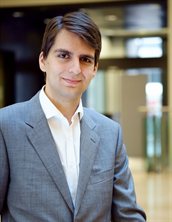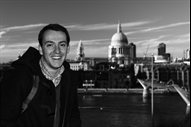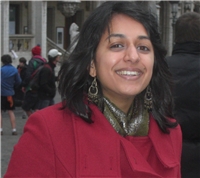The European Union is at a crossroads. The rise of populism, economic imbalances, security threats, and the migration crisis have made the disintegration of the EU a real possibility. How Europe deals with these challenges will deeply affect the future of the continent. There has never been a more opportune time to study the politics of the European Union in all its facets.
We offer a broad range of course options that explore EU government, politics, public policy, law and political economy, enabling our students to boast an impressive and extensive knowledge of the EU.
The programme is based across three Departments at LSE: the European Institute and the Departments of Government and International Relations. This allows the programme to cover a wide array of topics taught in more than 50 courses. Students have the opportunity to draw on the expertise of the largest number of academic experts in European government, politics and public policy to be found anywhere in Europe.
The multidisciplinary nature of the programme ensures that, in addition to building extensive and deep knowledge of the EU, students are able to analyse it in a multifaceted way which combines problem-solving, detailed empirical knowledge with the latest theoretical perspectives.
Programme Specifications
What our students say

"LSE’s European Institute is one of the foremost places to study the EU, making it my first choice to complete a Masters in EU politics. The MSc was extremely flexible, allowing a wide variety of different courses, in various fields, to be taken. The European Institute also contains the Hellenic Observatory, one of the leading research centres on contemporary Greece and Cyprus, which I have a particular interest in. I was able to secure an internship at the Observatory, helping develop my knowledge in this area, with their public seminar and event programme.
The European Institute organises a getaway to Cumberland Lodge in the Windsor countryside which is a fantastic opportunity to socialise informally with your fellow students and professors, while discussing matters relating to your programme. The Careers office at LSE also organises a European Internships Fair in Brussels, with students from the department arranging a trip to Brussels to attend the fair, in addition to in-house visits of the institutions. As a result of attending the Internships Fair, I was able to attain a traineeship in a public affairs consultancy."

"Getting to study at LSE was like a dream coming true: it is a university with an excellent reputation at the heart of a metropolis. Before joining LSE I had a strong knowledge of EU Foreign Policy, but not so much on internal policy areas and this programme offered me the opportunity to focus on both internal and external policies. It is a strong interdisciplinary Master's programme, as one can choose from a wide range of topics. For me the strong ties between the different departments are an advantage: it creates the possibility to build your own programme and to get in touch with different views on the EU during seminars with other fellow students. The excellent staff of the European Institute, which consist of leading scholars in their field of study, are highly supportive to students, and this, in combination with the high number of public lectures and student societies create a perfect learning environment where you can broaden your scope and form your own opinion.
Of course it is not only about studying! The European Institute – and LSE in general – is an international environment, where it is easy to make friends and build contacts with people from all over the world. Once a year the EI organises a trip to Cumberland Lodge for its MSc students; we focused on several aspects of Euro scepticism, but most of all it was a perfect break during the term to enjoy with my friends. As a course representative, I organised a three-day trip to Brussels with my colleague for the other PGEU students to visit the European Institutions and to attend the European Internship Fair organised by the LSE Career Service, an excellent experience to make first contacts with future employers. The LSE Career Service is superb, they help you with everything you need to know and they have a strong network of LSE Alumni to support you.
In summary I can only state that LSE and especially the European Institute lift European studies to a higher level and prepare you in an excellent way for the job market!"

"LSE's formidable reputation for political science was a major factor in my decision to apply there for a Master's degree. Although I had never studied the EU in depth before, I had come across areas of the programme in comparative government, international relations and economics at undergraduate level and had found my current affairs and career interests gravitating towards this field. Studying at the European Institute for a year allowed me to pursue a theoretically rigorous approach to understanding the EU that emphasised appreciating different academic perspectives, as well as knowing the key historical developments and institutional details. The programme has a flexible framework, offering the choice of an institutional or international relations focus, as well as the option to take courses from many other departments. Aside from the core modules, I took classes on the economics of European social policy, EU law and the European Parliament, consolidated by frequent public lectures and talks by eminent authorities (for example, the Europe Editor of the Economist). The European Institute's excellent networks means it is a hub of policy discussion and debate, which is particularly important for a field as dynamic as European studies. The Cumberland Lodge trip to discuss whether Europe is fit for the future inspired particularly lively discussions and was a great opportunity for students from different degree programmes to work together in a fun, sociable environment.
There's plenty of time to get involved in things other than studying and LSE encourages Master's students to do part-time internships, voluntary work and get as involved as possible in clubs, societies and meeting their fellow students. I had enough time to spend one day a week doing research for a charity and to be a mentor to three pupils at a local school, which was one of the most rewarding experiences of my year. The Careers Service is excellent and their advice definitely helped me to secure a traineeship at the European Commission shortly after completing my Master's – a route that many European Institute alumni seem to take."
Career Destinations
“After having completed my MSc Politics and Government in the European Union, I decided not to go back to my home country, nor to stay in London, but to go to Paris in order to start a traineeship at Notre Europe, the think-tank founded by Jacques Delors. Before moving to Paris. I was spending six weeks in Brussels in order to refresh my French and to participate in a Professional Skills Seminar for researchers in an early stage of their career in research and policy advice.
At Notre Europe-Jacques Delors Institute I now work as a “Research Fellow EU Politics and Institutions” – could one imagine a position that is semantically closer to “Politics and Government in the European Union”? The negotiations on the Treaty on Stability, Coordination and Governance (TSCG) in December 2011 and January 2012 were the ideal moment to examine in reality what I have learned about intergovernmental bargaining: I could write and publish a Policy Brief with the title “The making of a new treaty: Six rounds of political bargaining” in which I analysed the different drafts of the treaty that had been leaked. The treaty also showed that there was no “constitutional settlement” in the European Union.
When I decided to study at the LSE, I had the objective to work at a think-tank afterwards, but I did not imagine that I would coordinate large EU-wide projects two years later: In my Master’s degree I acquired the skills to analyse Legislative Politics in the European Parliament. Now, in the run-up to the European Parliament elections in May 2014, Notre Europe-Jacques Delors Institute has joined forces with VoteWatch Europe and mobilised nearly 20 national think-tanks to write analyses of a set of 15 key votes that shaped EU and national politics between 2009 and 2014.
Looking back, this very specialised degree at the European Institute gave me the opportunity to study exclusively what had already been my specific field of interest – and thus the MSc Politics and Government in the European Union proved extremely valuable for starting to work at a truly European think-tank with the EU as the focus of its activities.”
"Attending LSE was a career transforming experience. With 10 years commercial experience gained in a variety of sectors, I needed to expand my understanding of the dynamic between the political landscape and business. The European Institute really fulfilled the brief.
Through the masters programme I deepened my knowledge of European politics, government and history while enjoying the flexibility to examine areas of specific interest such as environmental legislation and political economy. I was able to immediately apply my LSE experience when I joined Low Carbon Workplace, a new partnership between Threadneedle, Stanhope and the Carbon Trust. I am managing director of Low Carbon Workplace Ltd, a key advisor to the Low Carbon Workplace Fund which buys office buildings, refurbishes them to very high energy efficiency standards and lets them to occupiers who receive certification to the Low Carbon Workplace Standard."
LSE enabled me to develop a rigorous, analytical approach to understanding issues and frameworks, exploiting opportunities and developing strategy, at the same time as honing my communication, prioritisation and team-building skills. It has already proved an invaluable time and financial investment." 2007-2009 Student, Brian Duggan
Brian Duggan"I took MSc Politics and Government in the European Union part-time over the two years 2007-2009. I started the degree with an interest in but no serious knowledge of the European institutions, by the time I completed it, I was advising MEPs and Ministers on EU affairs. Something clearly went right along the way!
Mid-way through the programme I began work at the European Parliamentary Labour Party, the Labour Group of MEPs, and part of the wider Social Democrat Group in the European Parliament. The role is based in London but also involves travel to Brussels and Strasbourg. It involves an awful lot of politics as you would imagine, but lots of policy too. Brussels and Westminster are often worlds that face difficulties understanding one another and working between the two offers a unique insight into public policy in both settings.
As well as the strong understanding of the processes of EU decision making, the rigour with which the PGEU programme put into my writing and researching was the real skill that I draw on most today. The course also allowed to me to make a transition from being an Arts undergraduate with an interest in the political process to becoming someone skilled in the ability to undertake political and policy research. When I started at the LSE I was keen and smart but lacked some of the research skills and the knowledge that would be essential to working in the political field I wanted to break into. My time at the European Institute gave me a sustained exposure to some of the world's experts in European affairs and a student cohort that will also go on to be leaders in their fields."
"As I was about to finish my MSc final dissertation at LSE, I was offered a position at the French Permanent Representation to the EU (in the European Parliament unit) in the context of the French presidency of the EU (2008). I did not hesitate and moved straight to Brussels the first week of September. There's no doubt that my LSE degree helped me get the job. After two extremely intense years in Brussels, I decided to keep on working for the "Quai d'Orsay" and joined the headquarters of the Foreign Ministry in Paris to work on EU communication matters as well as the "French influence" within the EU Institutions. Since then, I passed the diplomatic test and I am now in charge of the EU-Balkans relations.
I currently work in European Union external relations unit, where I am in charge of the relationship between the EU and the Western Balkans countries that haven't joined the EU yet. There's a wide range of issues in my portfolio, starting with pre-accession matters, in the context of the stabilization and association process, which aims to bring the Balkan countries closer to the EU. My tasks also include the management of the European pre-accession financial tool, as well as the follow-up of ESDP missions in the region (namely in Bosnia-Herzegovina and Kosovo). Given the EU’s influence in the Balkans, and France’s will to be more active in the region, this position is absolutely thrilling.
Given the size of the French diplomatic network, opportunities somehow seem unlimited. For instance, I can pursue my current career in the political realm but also, in the longer run, be in charge of cultural or economic cooperation, handle the relations with the press etc. But from September onwards, I will be posted in Qatar, where I will be responsible for political issues at our Embassy in Doha."